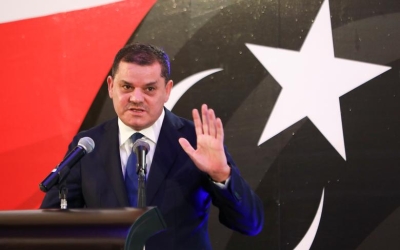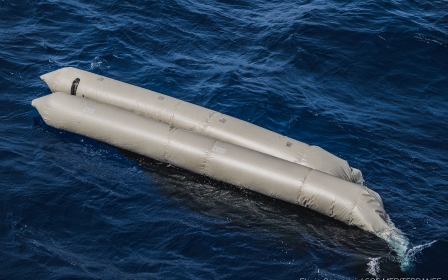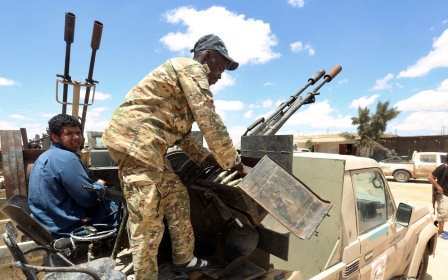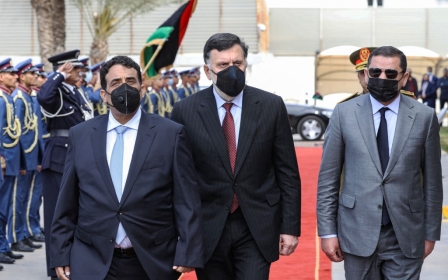Libya's Khalifa Haftar punishing critics in 'sham' military trials, Amnesty says

Military courts in eastern Libya have sentenced at least 22 people to death and imprisoned hundreds more in "sham, torture-tainted" trials, Amnesty International said in a report on Monday.
The rights group said the trials were "aimed at punishing real or perceived opponents and critics" of the Libyan Arab Armed Forces (LAAF), a military force led by eastern military commander Khalifa Haftar.
Amnesty, which has previously documented widespread abuses in the war-ravaged country, listed abductions, beatings, waterboarding, and threats of rape among the abuses allegedly committed by Haftar's forces.
"Military trials of civilians flout international and regional standards and are inherently unjust," said Diana Eltahawy, Amnesty International's deputy director for the Middle East and North Africa.
Amnesty noted that in multiple cases the defendants were not told of the exact charges against them until trial and were not granted access to the evidence against them.
New MEE newsletter: Jerusalem Dispatch
Sign up to get the latest insights and analysis on Israel-Palestine, alongside Turkey Unpacked and other MEE newsletters
"The Government of National Unity must immediately put an end to the military trial of civilians, and order investigations into torture and other crimes under international law committed by armed groups,'" said Eltahawy.
She also called on Libya's Government of National Unity to reverse the sentences on civilians that were passed by military courts and said that any civilians charged with "internationally recognisable offences" should be tried in civilian courts without resorting to the death penalty.
While it was not clear whether the 22 death sentences were carried out, Amnesty said Libyan rights organisations reported that 31 executions were carried out between 2018 and 2020.
Libya has endured years of chaos since a Nato-backed uprising toppled and killed long-time leader Muammar Gaddafi in 2011.
Fighting between rival militias and competing administrations came to a halt last summer, and a formal ceasefire went into effect in October, followed by the establishment last month of a new unity government led by interim Prime Minister Abdul Hamid Dbeibah.
While the unification of Libyan institutions and the government should have put an end to the divisions in practice, forces loyal to Haftar still have effective control over eastern Libya.
Dbeibah was scheduled to visit Benghazi in the country's east on Monday, but the trip was postponed after a government advance security team was turned back from the airport, officials told the Associated Press.
In March, Libya ordered an investigation after more than a dozen bodies were found in the eastern city of Benghazi.
Middle East Eye delivers independent and unrivalled coverage and analysis of the Middle East, North Africa and beyond. To learn more about republishing this content and the associated fees, please fill out this form. More about MEE can be found here.





